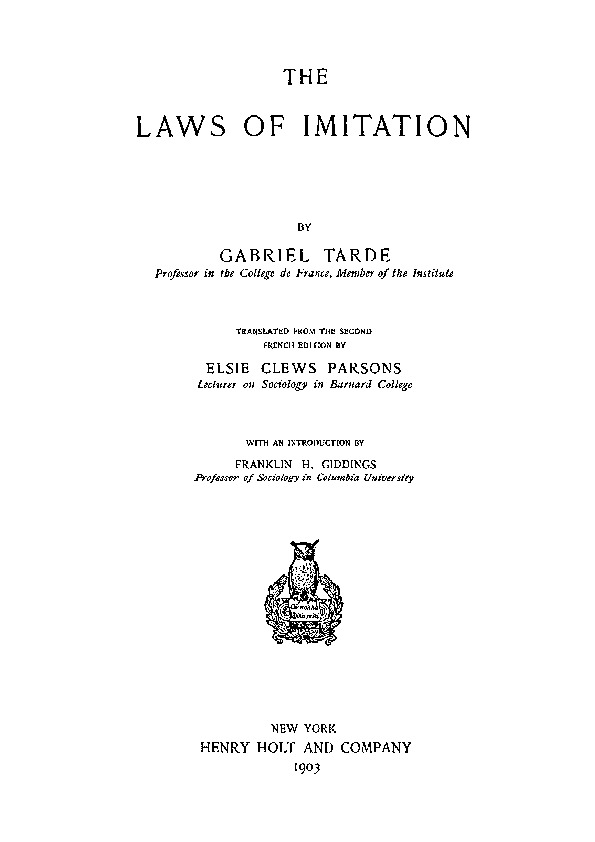Gabriel Tarde: The Laws of Imitation (1890/1903) [French/English]
Filed under book | Tags: · archaeology, criminology, imitation, invention, philosophy, psychology, society, sociology, somnabulism

“Among the phenomena that early arrested his attention was imitation. From his office of magistrate he observed the large part that imitation plays in criminal conduct. Does it play a smaller part in normal conduct? Very rapidly M. Tarde’s ardent mind ranged over the field of history, followed the spread of Western civilisation, and reviewed the development of language, the evolution of art, of law, and of institutions. The evidence was overwhelming that in all the affairs of men, whether of good or of evil report, imitation is an ever-present factor; and to a philosophical mind the implication was obvious, that there must be psychological or sociological laws of imitation, worthy of most thorough study. [..] Tarde perceived that imitation, as a social form, is only one mode of a universal activity, of that endless repetition, throughout nature, which in the physical realm we know as the undulations of ether, the vibrations of material bodies, the swing of the planets in their orbits, the alternations of light and darkness, and of seasons, the succession of life and death. Here, then, was not only a fundamental truth of social science, but also a first principle of cosmic philosophy.” (from the Introduction)
Les lois de l’imitation: étude sociologique
Publisher Félix Alcan, Paris, 1890
432 pages
English edition
Translated from the second French edition by Elsie Clews Parsons
With an Introduction by Franklin H. Giddings
Publisher Henry Holt and Company, New York, September 1903
404 pages
announcement (The New York Times, 1903)
google books [French]
google books [English]
PDF [French]
PDF [English]
PDF (more formats) [English]
Leave a Reply

